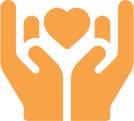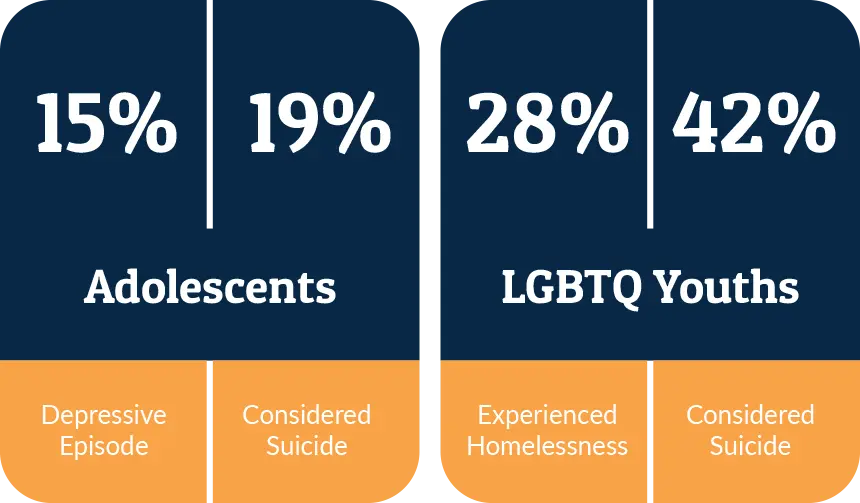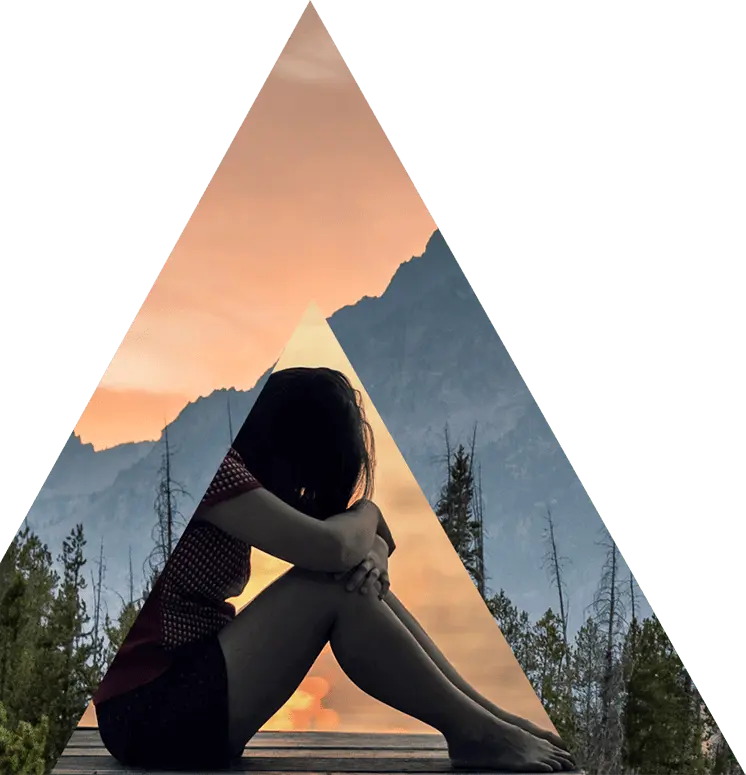Turning Winds is a superior residential treatment center, located in Montana, specializing in various therapeutic intervention strategies (CBT, DBT, behavioral therapy) and life skills development. We offer clinical services and experiential education for struggling teenagers wrestling with pain medication abuse/addiction, pornography addiction, narcissistic behavior, and other mental health issues.

This guide covers everything you need to know about group homes, including how they’re different than residential treatment, what they cost, and what makes them work so well.
How do group homes for troubled teens work? How do group homes help troubled teens? Are they similar to residential treatment facilities? What are the benefits and who will benefit from living in one?
Group homes offer residential care to youths in need. Like youths that experienced trauma and have been neglected or abused. and those who have experienced trauma. Some group homes specialize in helping youths who have behavioral issues or disabilities. And those who are transitioning out of a restrictive setting like a juvenile detention center or rehab.







Group homes offer at-risk youths a place to live where they can get back on their feet, access treatment, have supervision and learn to modify their behavior, break patterns, and live healthier lives. For many years, these homes have been used as an alternative to the traditional institutional care or incarceration of troubled teens.
While there are single-gender group homes, most accept male and female residents. The length of stay can be short or long-term and the level of security also varies from highly restrictive to non-restrictive.
Group homes have been around since the early 1800s. The Society of Friends in Philadelphia (the Quakers) opened the first group home in 1881. The home housed children in need through 1979.
One of the biggest threats to young people today is drugs and alcohol. According to a survey conducted by NIDA (National Institute on Drug Abuse), around 9.4% of people twelve years and older have used an illicit drug within the past month. This same study showed marijuana use is on the rise.
Most state-run or religious group homes serve teens who have become victims of substance abuse and addiction. Under the influence, these teens make poor decisions that place their lives in danger. Today we see group homes that help LBGTQ teens, run-aways, trafficking victims, and homeless adolescents.
According to the 2021 National Survey on LGBTQ Youth Mental Health, 28% of LGBTQ youth experience homelessness or housing stability, and 42% seriously considered attempting suicide in the past year. These vulnerable teens have higher rates of mental health issues and discrimination. Recently, there’s been a focus on building more Group homes to provide safe spaces for these vulnerable adolescents.
Mental health issues among teens continue to increase, 15% of adolescents had at least one major depressive episode, and 19% seriously considered suicide. These struggling teens require comprehensive mental health services and educational resources, the type of group homes that offer those services are known as therapeutic Group Homes for Troubled Teens.


The best treatment for teenagers with behavioral problems is found at therapeutic treatment centers. They provide a structured environment with therapy and counseling sessions.
Most parents of troubled teens searching for a group home for their teen are searching for a residential treatment facility that will provide evidence-based therapy and an opportunity for their child to pursue their education.
Our program combines therapeutic, wilderness, and academic elements, providing the service that parents often mistakenly look for in a group home. We support adolescents with psychological health concerns, conduct and behavior difficulties, substance misuse, and dependence. Through our certified academic program, teens gain enthusiasm for learning and realize they can excel in school.
Our licensed therapeutic staff is dedicated to providing troubled teens with the skills they must learn to live healthier lives. In the surroundings of the beautiful outdoors, they participate in various daily activities that are always centered on therapeutic learning.
With our 5:1 student-to-staff ratio, no teen falls through the cracks. Each of our students is an example of a recovering teenage boy or girl. We provide the individual therapy treatment they need to overcome the life obstacles that have held them back from living a valuable and healthy life.
To inquire about our program, parents can contact one of our expert intake counselors at 1-800-845-1380
Parents who are searching for help for their children often seek group homes for teens and need to educate themselves on what these facilities can and cannot offer and who they serve.
State-run group homes for mentally ill youths and children with disabilities. Also known as care homes, these are usually sponsored and regulated by state agencies. Typically these care facilities offer housing for mentally and physically disabled youths and are staffed by house parents.
Usually, a married couple plays a parenting role in caring for the individuals living in the home. Some have additional staff to help care for the residents. These homes work mostly with children who cannot live with their families or on their own. These group home environments are generally not therapeutic and do not foster true change.
Privately owned transitional living facilities. There are several types of halfway homes. Some are transitional and offer short-term housing to people who need to rebuild their lives after leaving jail or rehab.
Some are sober group homes for individuals leaving drug rehabilitation. Some are alternatives to jails or for youths in a work-release program. These types of group homes have limited amenities.
These types of group homes are residences that house minors who can’t live with their parents or other family members due to abuse, neglect, or abandonment and need to be protected.
Foster homes normally host two foster children unless there are more siblings. They provide a safe and nurturing environment and teach children life skills.
Although Turning Winds is an alternative to a group home for girls. Our therapeutic program fosters true change by helping girls understand the underlying mental health issues that may be to blame for their behaviors and choices.
Turning Winds seeks to give troubled girls a new outlook on life. We encourage our girls to discover themselves, develop, and recognize their worth. We teach them how to build their self-esteem and make intelligent decisions that will benefit their lives rather than harm them.
Through therapy, teens can learn the skills they must possess to avoid returning to substance abuse and addiction or manage their mental health diagnosis. We teach them skills to manage their condition and live productively happier lives. We treat girls wrestling with sleep disorders, body issues, eating disorders, alcohol abuse, drug use, or hypochondriasis.
With our Co-ed experience, girls discover how to interact socially with boys so they can learn to become socially mature. While parents often believe that a group home for girls is better. Research has shown that single-gender facilities do not adequately prepare teens for acclimating to normal society once they graduate from the program.
Turning Winds offers a unique treatment approach for boys as an alternative to an adolescent group home for boys who seem to have lost their way in life.
Many young men do not know how to face the pain in their lives effectively, so they turn to alcohol and drugs, which lead to substance abuse and addiction. When boys are given therapy, they need to overcome mental health constraints. They learn to make better life decisions to pursue true sobriety and healthy lives.
Our Co-Ed Group Home provides troubled teens with an actual living environment. Here, they learn to find common ground with members of the opposite sex to work together towards achieving their sobriety goals.
Often, teens lack the social skills they need for positive relationships. Teens who graduate from our therapeutic program have learned to respect themselves and others. These skills will propel them toward becoming healthy, successful young adults.
Through an individualized program of evidence-based care, personalized academic support, inspirational experiences, and authentic human connection, Turning Winds helps young people understand themselves, their challenges, and how to actively manage and pursue lives of purpose and meaning
We hope that you will allow us to play a small part in getting your teen and family the help that is needed. Together we can make a difference in the life of your child.
We offer the program parents unwittingly believe they are seeking when they begin their online search for a group home. Our program provides therapy for teens who are facing mental health issues, behavioral problems, substance abuse, and addiction. Through our fully accredited academic program, teens develop a love of learning and discover they can successfully pursue their education.
Our therapeutic staff is dedicated to providing troubled teens with the skills they must learn to live sober lives. In the surroundings of the beautiful outdoors, they participate in various daily activities that are always centered on therapeutic learning.
With our 5:1 student-to-staff ratio, no teen falls through the cracks. Our students are typical examples of boys and girls living in a group home. Similarly, they need individual therapy to overcome the challenges keeping them from living a sober, healthy, productive life.
Turning Winds is an award-winning residential treatment center with outdoor recreation, adventure therapy, life skills development, and experienced-based education for teenage boys and girls wrestling with sleep disorders, alcohol abuse/overuse, and/or hypochondriasis. To inquire about our program, parents can contact one of our expert intake counselors at (800) 845-1380 today!

Therapeutic schools and residential treatment centers are proven therapeutic solutions for troubled teens. They help teens who are struggling academically in traditional school environments. Especially those teenagers who are affected by mental health, conduct, or behavioral disorder.
These treatment centers provide a group home-like residential environment with proper structure, supervision, and guidance for struggling teens under the supervision of a clinical and academic team.
New patients are encouraged to change their behavior, but first, they must recognize the reasons they felt and behaved in harmful ways. We strive to help them get to a state where they feel hopeful and can participate in their treatment.
Here are nine reasons why these environments are the best possible solution for troubled teens:
Removing the child from their environment and sending them an RTC or TBS immediately provides a safe environment.
The staff is trained to handle problematic behaviors and situations.
They will immediately follow an established routine that creates the structure they need to start healing.
The therapeutic environment and related activities change the dynamics, and there are no opposing influences or conflicts.
Access to educational resources, mental health care, and skill training opportunities.
24-hour supervision eliminates the risk of running away.
No distractions like technology and social media.
Medication management
A communal life experience in a safe “home-like”
Ever wonder why adolescents make such bad decisions? Most teens simply cannot make effectual decisions because a teen’s brain has not yet reached full maturity. They cannot regulate their emotions and control their impulses.
When a teen faces mental health concerns, the inability to make wise decisions becomes even more pronounced, often leading them down the destructive path of substance abuse and addiction.
Through our Turning Winds therapeutic program, teens can be given a chance to reclaim their lives and learn the skills they need to become successful young adults. Our therapeutic program focuses on helping teens to identify the mental health constraints that need to be faced head-on.
When teens arrive at Turning Winds, they undergo individual testing and assessments so an individual therapeutic and educational plan can be implemented. Our cognitive-behavioral approach seeks to help teens make lasting changes in their behavior while learning to use valuable means of dealing with life.
With our fully accredited academic program, teens can receive the adequate therapy they require while pursuing their education so they do not fall behind. Our small classroom sizes (6-12 students) allow our certified teachers to provide individualized education plans, so teens of all learning abilities can be successful in their academic pursuits. Through our academic program, teens learn to love learning.
A large part of the therapy our facility offers is through the outdoors. Surrounded by the beauty of nature, we offer daily therapeutic outdoor activities that foster self-reflection and goal pursuits. Teens learn to work with their peers to reach common goals. Whether hiking, swimming, skiing, camping, or mountain biking, teens consistently learn new skills they will need to live sober, successful lives.
Turning Winds is a choice residential treatment center and therapeutic boarding school. Our patients participate in life skills development and experiential education for adolescent boys and girls wrestling with sexual abuse, poor academics, and/or video game addiction (gaming) obstacles.
Contact one of our expert intake counselors at (800) 845-1380 to get licensed support for your at-risk adolescent today!


MentalHealth.gov: Many at-risk teenage boys and girls and young adults in your local area turn to the Internet for assistance and advice on a wide range of mental health issues.
To ensure that they get the right support and information, the Department of Health and Human Services (HHS) has launched mentalhealth.gov. This is a reputable website that assists with mental health diagnosis and treatment for struggling teenagers and young adults in your local area. Advice is also given on how to take part in the “Community Conversations” initiative.
We understand that the decision to seek help for your struggling child is a very challenging choice and that you likely have numerous questions about our therapeutic program. Give us a call to learn more, or apply using our secure online acceptance form today.

31733 S Fork Yaak Rd Troy, MT 59935
Phone: 800-845-1380
International: 208-267-1500
Fax: 888-892-4568
© 2023 Turning Winds | All Rights Reserved